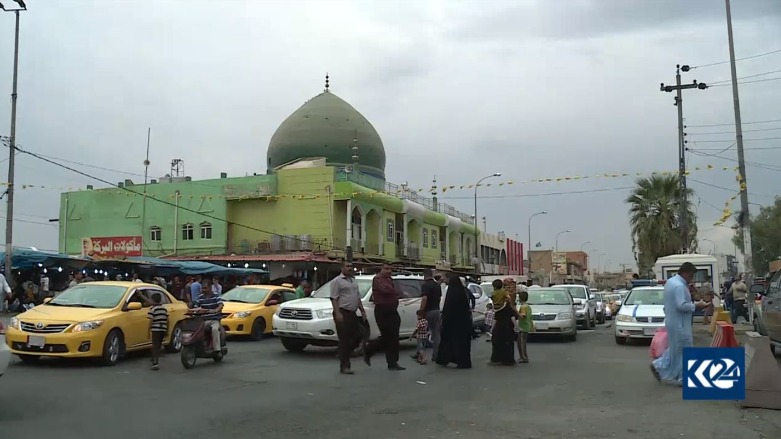Masoud Barzani: Saddam Hussein recognized Kirkuk’s Kurdish identity

ERBIL (Kurdistan 24) – Prominent Kurdish leader Masoud Barzani stated in a television interview on Friday that former Iraqi leader Saddam Hussein had, in conversation, once acknowledged the city of Kirkuk’s deep-rooted Kurdish identity as a legitimate foundation on which to build an independent Kurdistan, however undesirable he found this conclusion to be.
"Saddam told me personally that Kirkuk is a Kurdish city and that this would be the natural basis for establishing a Kurdish state, then he said, 'This is what we do not agree with,'" explained Barzani to a journalist from the Dubai-based MBC satellite news station.
Barzani, the head of the Kurdistan Democratic Party (KDP), referred to a clause in the agreement of March 1970 between the Kurds and the Iraqi government which outlined a referendum to be held to decide the fate of the province of Kirkuk after four years.
Barzani explained that "the agreement contained a mistake in one of its clauses, which is the postponement of resolving the issue of Kirkuk," adding that "it should have been decided at that time and not after four years."

After the downfall of the former regime in 2003, the Kurds and their Iraqi partners reached a road map to settle the question of the province of Kirkuk as well as the rest of disputed territories claimed by both Baghdad and Erbil.
Kirkuk, home to Kurds, Arabs, Turkmen, and Christians, is the center of contention between the federal and regional governments and the most prominent of the territories disputed by the two.
Article 140 was introduced into the Iraqi constitution to allow its 2005 ratification by kicking controversial decisions on the disputed territories down the road, but over a decade has passed since the 2007 deadline for the article's implementation.
Over the decades, anti-Kurdish ethnic cleansing has been commonplace in Kirkuk, a historically Kurdish majority city. The demography of the area has been shifted during the reign of Saddam Hussein, most dramatically in the genocidal Anfal campaign.
Following the ouster of Hussein’s Baathist regime in 2003, the process entered a reversal and many Kurds moved to the province, with some allowed to return to lands that had previously been taken from them.
In Baghdad's harsh response to the Kurdistan Region holding just the kind of independence referendum in 2017 that is outlined in the constitution–and the 1970 agreement before that–Iraqi forces and Iran-backed militias attacked Kirkuk and pushed Kurdish Peshmerga forces from it, as well as from other disputed territories.
Soon afterward, allegations of the forced displacement of Kurds began to pop up. In some cases, Kurdish landowners were told to vacate lands they had returned to by ethnically Arab claimants in possession of Saddam-era documents.
Read more: Kurdistan parliament investigates 'Arabization' in Iraq's disputed territories
Barzani said in Friday's interview that "geography has wronged us very unfairly," pointing out to the longstanding oppression faced by Kurds in Iraq, Syria, Iran, and Turkey since World War I.
The disputed territories, encompassing land that stretches from the borders of Iran to Syria, continue to be a perennial cause of discord between the Kurdistan Regional Government (KRG) and its federal counterpart in Baghdad.
Kirkuk, as always, is at the heart of the struggle.
Editing by John J. Catherine
